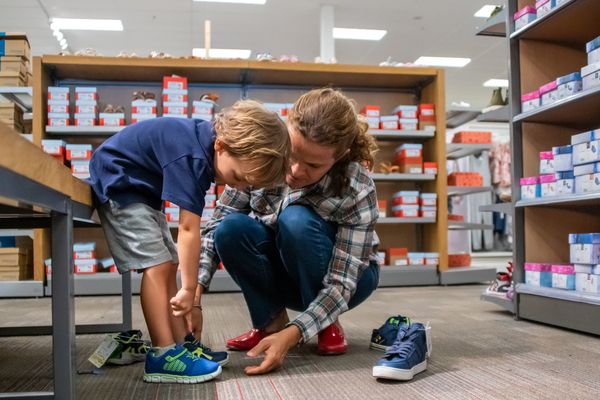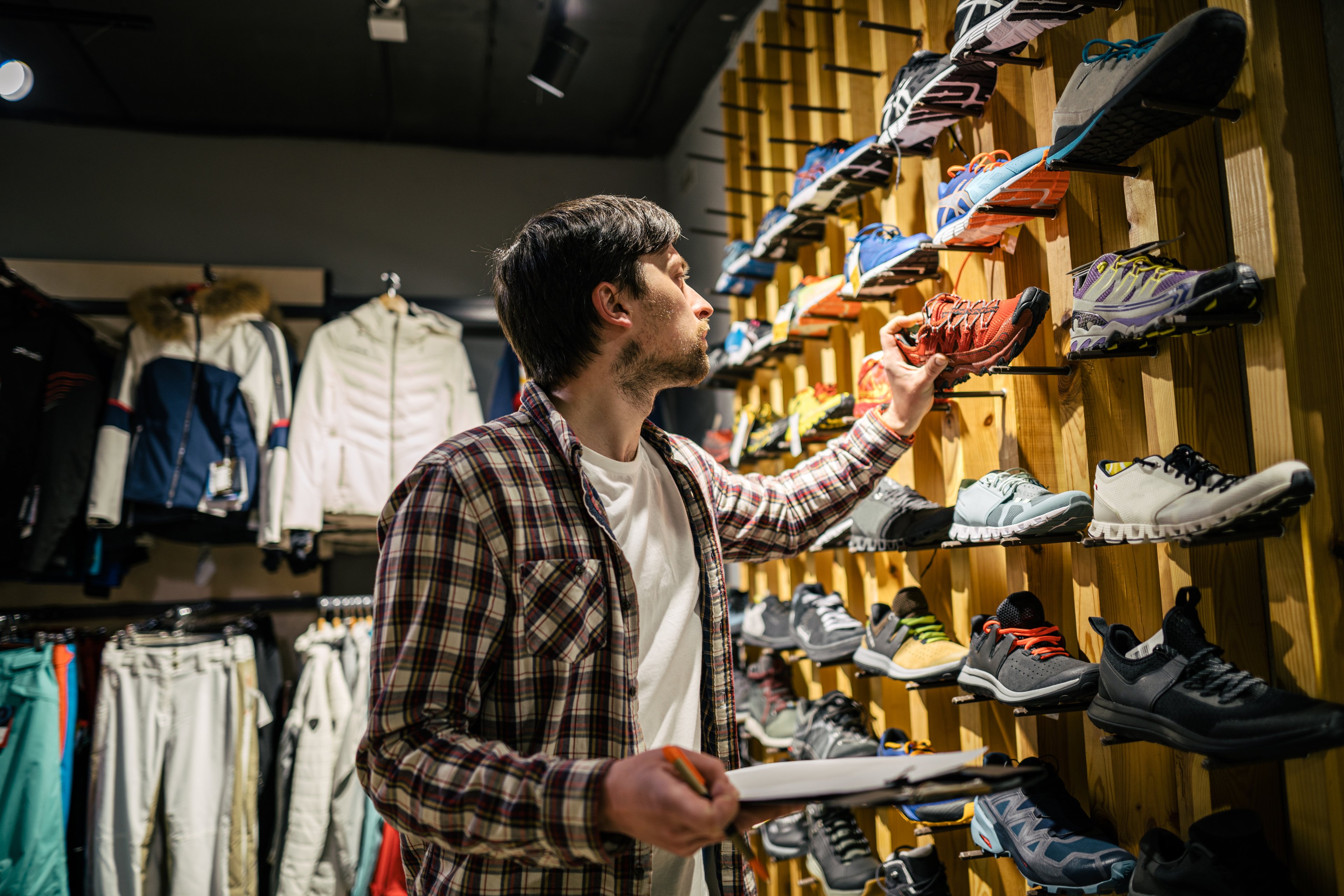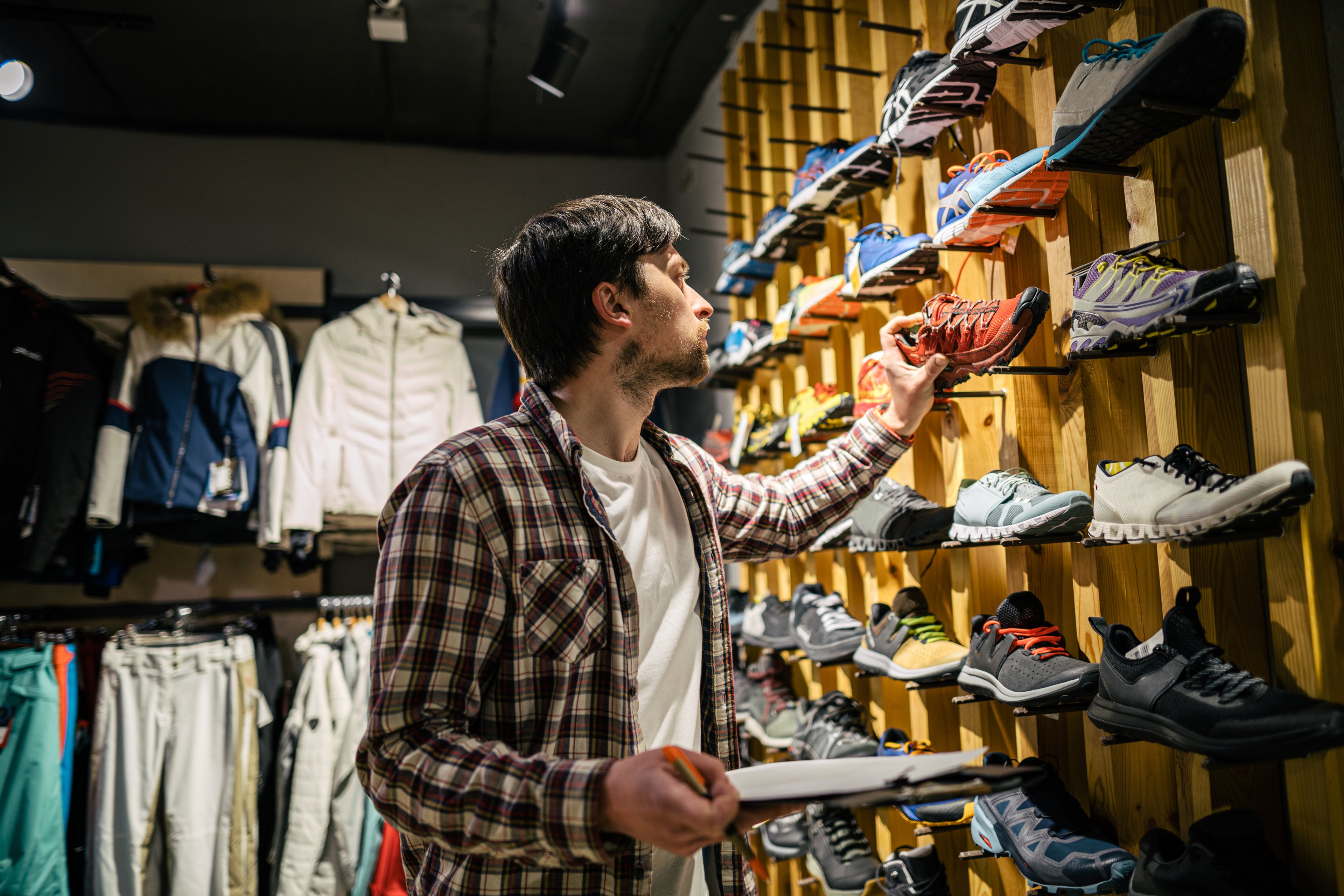Footwear retailer DSW (DSW 9.04%) shot itself in the foot earlier this month by partnering with Authentic Brands Group (ABG) to acquire brand designer and developer Camuto Group for $375 million. All the gains that DSW recently made in regaining its financial stability have been jeopardized by the abrupt strategy shift that this deal represents.
CEO Roger Rawlins says the retailer needed to do something different because "what got us here won't get us there." However, it looks like DSW overpaid to buy a business that won't be accretive to earnings for at least a year, while adding greater risk to its existing operations.

Image source: Getty Images.
Best foot forward?
The Camuto acquisition is complicated. DSW is paying $200 million to acquire all of Camuto's global production, sourcing, and design infrastructure, as well as existing working capital of around $100 million. It will get operations in Brazil and China and a new distribution center in New Jersey. DSW will also acquire the licensing rights for Jessica Simpson footwear, the footwear and handbag licenses for Lucky Brand and Max Studio, and joint venture stakes in the ED Ellen DeGeneres and Mercedes Castillo brands.
Additionally, the footwear retailer paid $56 million to acquire a 40% stake in the intellectual property of Camuto Group's proprietary brands, with Authentic Brands Group taking a 60% share. ABG is owner and licensor of lifestyle, celebrity, and entertainment brands including Frye, Juicy Couture, Elvis Presley, Marilyn Monroe, and Shaquille O'Neal.
Yet Camuto has been struggling. Last year, it tried to merge with Canadian footwear giant Aldo Group, but the latter called off the deal after three months of negotiations. Camuto then hired a turnaround adviser to help restructure the business as the family continued seeking ways to exit -- an effort that began following the death of the company's founder, Vince Camuto, in 2015.
Camuto was also one of the founders of the Nine West shoe company, which Authentic Brands acquired in a bankruptcy auction this summer by outbidding DSW.
Becoming a supplier as well as a competitor
The problem with the latest deal is that it brings DSW into a completely new business while its core operations are still getting their bearings. In August, DSW was able to report a 16% revenue gain for the second quarter, well above the 1% increase Wall Street had been looking for. But now, it will be entering into the wholesale business, which is much different from what it is familiar with through its retail operations.
Moreover, although Camuto brands are currently found in Nordstrom, Macy's, and other major department stores, those stores might not be willing to extend their relationship now that Camuto is owned by a competing retailer. Similarly, Dillard's may be leery of continuing to allow Camuto to develop its private-label brands, which the latter has been designing for many years now.
One of the rationales that DSW used for the deal was that it would bring in new streams of revenue. That ultimately might not be the case if these retailers balk at sharing data that their competitor can use against them.
An unproven track record in dealmaking
The latest deal follows another one that DSW completed earlier this year with Canada's Town Shoes. After planning the acquisition for over a year, DSW abruptly decided to shutter the unprofitable Town Shoes chain after performing a top-to-bottom review. (DSW will still operate three other chains acquired in the transaction.) This seems like something that should have been considered beforehand, particularly as DSW had first acquired a 44% equity stake in the business in 2014.
DSW previously bought eBuys, a discount online footwear retailer that consistently lost money for the company. It ended the business earlier this year.
It's clear that the market didn't like the Camuto acquisition because of the risk it introduces, and DSW stock has plunged more than 20% since the deal was announced. After several quarters of lackluster performance, DSW looked like it was back on track, but now it seems as if it's tripping over its own feet again.






